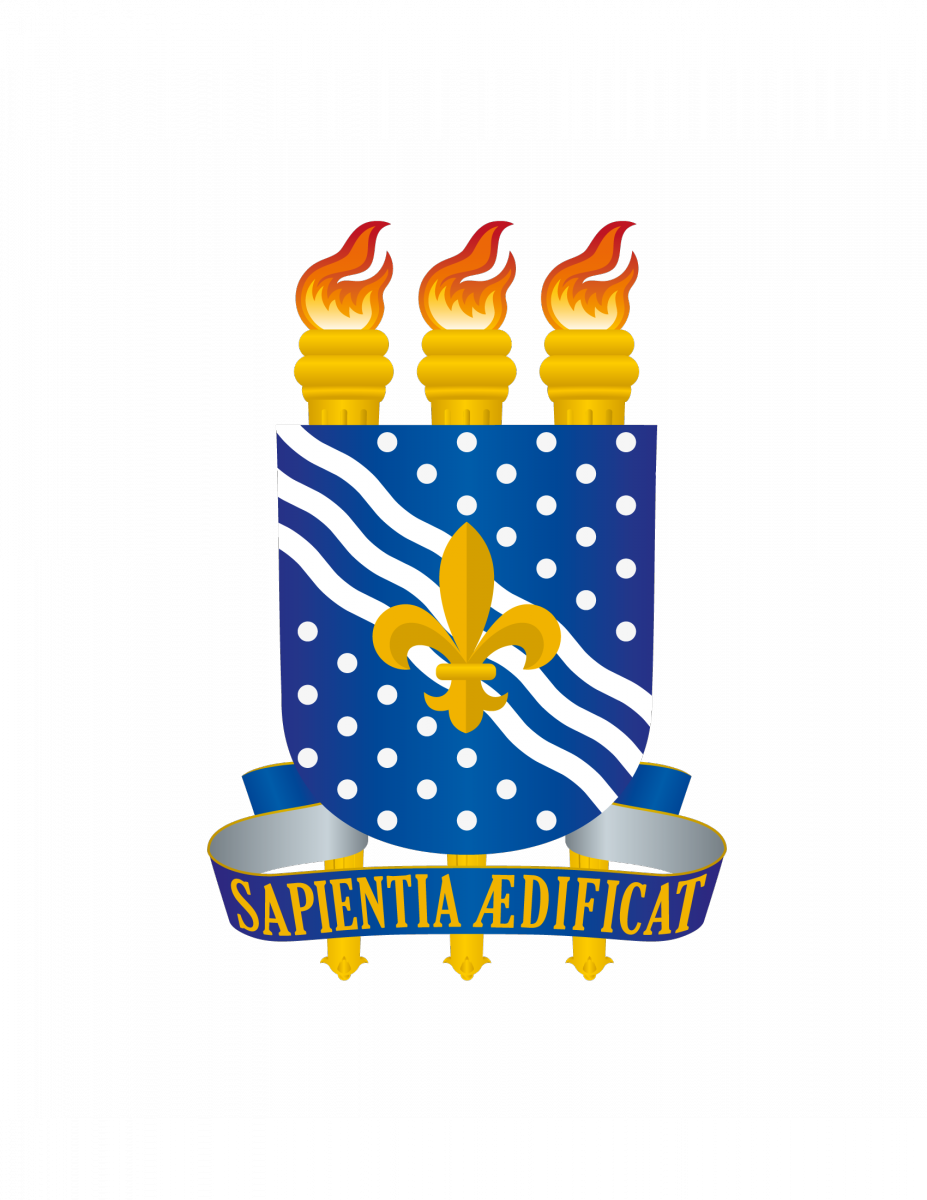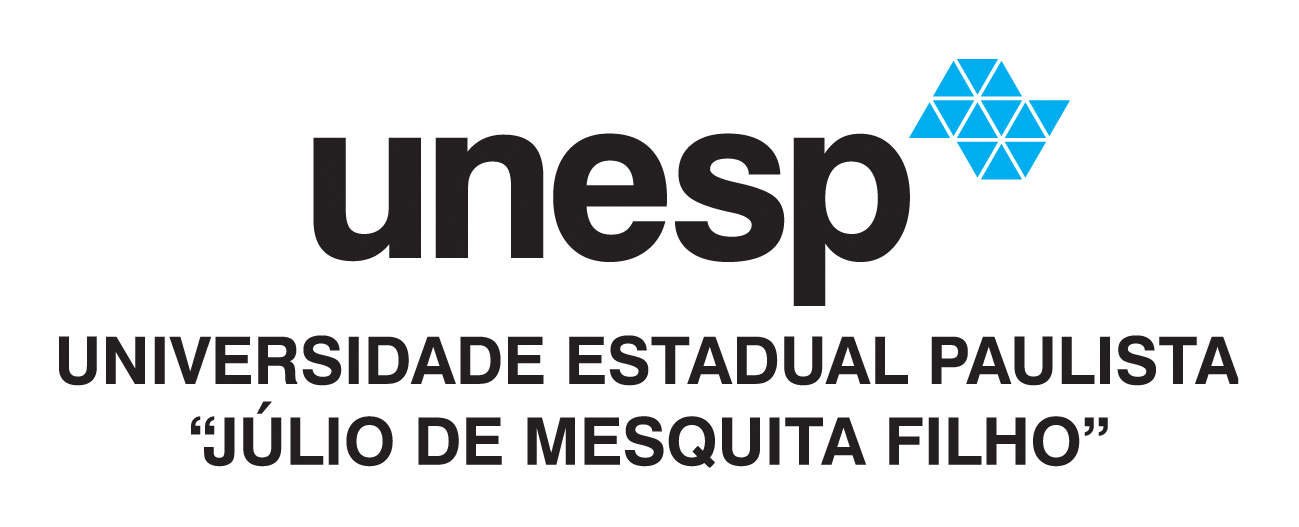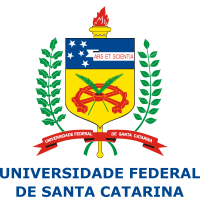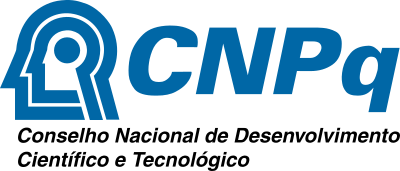Information, Data and Technology
Guilherme Ataíde Dias
Federal University of Paraíba (UFPB) | guilhermeataide@ccsa.ufpb.br | https://orcid.org/0000-0001-6576-0017 | https://lattes.cnpq.br/9553707435669429
Undergraduate in Computer Science from the Federal University of Paraíba UFPB Campus II (1990), Bachelor in Law by the University Center of João Pessoa UNIPE (2010), Master in Organization & Management by Central Connecticut State University? CCSU (1995), PhD in Information Science (Communication Sciences) at the University of São Paulo? USP (2003) and Post-Doctor by UNESP (2011). He is currently Associate Professor III at the Federal University of Paraíba, where he holds a degree in Information Science. He is involved with Post-Graduation through the Post-Graduate Program in Information Science and Postgraduate Program in Administration, both of UFPB. Has research interest in the following themes: Knowledge Representation; Information Architecture; Information security; Information and Communication Technologies; Health Information; Social networks; Free software; Law, Ethics and Intellectual Property in Cyberspace; Scientific Data Management; Legal Information; He is currently Research Productivity Scholar (PQ) at CNPq.
Moisés Lima Dutra
Federal University of Santa Catarina (UFSC) | moises.dutra@ufsc.br | https://orcid.org/0000-0003-1000-5553 | https://lattes.cnpq.br/1973469817655034
Professor, Federal University of Santa Catarina, Department of Information Science. PhD in Computing from the University of Lyon 1, France (2009). Master in Electrical Engineering, subarea Automação e Sistemas (2005) and Bachelor in Computing (1998) from the Federal University of Santa Catarina. His current lines of research are related to Applied Artificial Intelligence (Machine Learning, Deep Learning, Semantic Web, Linked Data) and Data Science (Big Data, IoT). It is linked to the research group ITI-RG (Intelligence, Technology and Information - Research Group).
Fábio Mosso Moreira
São Paulo State University (UNESP) | fabio.moreira@unesp.br | https://orcid.org/0000-0002-9582-4218 | https://lattes.cnpq.br/1614493890723021
Undergraduate degree in Business Administration from the Faculty of Sciences and Engineering (UNESP / Tupã). Master degree in Information Science - (UNESP / Marília). PhD student in the Graduate Program in Information Science (UNESP / Marília). Member of the Research Group - GPNTI (UNESP / Marília) and GPTAD (UNESP / Tupã). Collaborator of the Project Digital Skills for Family Farming (CoDAF). Content editor of the Electronic Journal Digital Skills for Family Farming (RECoDAF). Professional Technical Skill in Informatics from ETEC Massuyuki Kawano - Centro Paula Souza de Tupã. Professional experience in the ERP Information Systems for Logistics Operations. Works with research in Information Science, studying the use of digital resources for access to government data of Public Policies in the context of the small farmer.
Fernando de Assis Rodrigues
Federal University of Pará (UFPA) | fernando@rodrigues.pro.br | https://orcid.org/0000-0001-9634-1202 | https://lattes.cnpq.br/5556499513805582
Professor at Federal University of Pará. Ph.D. and M.S. in Information Science, Post-bachelor in Internet Systems and Bachelor of Science in Information Systems. Most of his experience is based on works developed as a Full Stack Developer and Database administrator, especially with Python, Java and PHP programming languages, as well as MySQL, MariaDB, SQLite3 and PostgreSQL databases. Also, he lectured classes related to the context of Computer Science to undergraduate and graduate students at UNESP. Currently, He workd as a postdoc researcher at UNESP labs, working in data studies.
Ricardo César Gonçalves Sant'Ana
São Paulo State University (UNESP) | ricardo.santana@unesp.br | https://orcid.org/0000-0003-1387-4519 | https://lattes.cnpq.br/1022660730972320
Associate Professor at the Paulista State University - UNESP, Faculty of Sciences and Engineering - FCE, Campus de Tupã, on an exclusive dedication, where he is Chairman of the Monitoring and Evaluation Committee of the Graduate Courses - CAACG, Local Coordinator of the Center for Studies and Pedagogical Practices - CENEPP and Local Ombudsman. Professor of the Post-Graduate Program in Information Science of the Paulista State University, Marília Campus. Graduated in Mathematics and Pedagogy, Master in Information Science (2002), Doctorate in Information Science (2008) and Freelance in Management Information Systems by UNESP (2017). He has specialized in Object Orientation (1996) and Management of Information Systems (1998). Ad hoc advisor of periodicals and development agencies. Member of the Research Group - New Technologies in Information GPNTI-UNESP. Has experience in the area of ??Computer Science, currently conducts research focused on: information science and information technology, investigating issues related to the Data Life Cycle, Transparency and Information Flow in Productive Chains. He worked as a professor at Faccat Faculdade de Ciências Contábeis e Administração de Tupã, where he coordinated a course of Administration with Qualification in Systems Analysis for ten years and the course of Licenciatura in Computing. He worked in the private sector as a consultant, integrator and researcher of new information technologies from 1988 to 2004.
Organizators
Guilherme Ataíde Dias
Federal University of Paraíba (UFPB) | guilhermeataide@ccsa.ufpb.br | https://orcid.org/0000-0001-6576-0017 | https://lattes.cnpq.br/9553707435669429
Undergraduate in Computer Science from the Federal University of Paraíba UFPB Campus II (1990), Bachelor in Law by the University Center of João Pessoa UNIPE (2010), Master in Organization & Management by Central Connecticut State University? CCSU (1995), PhD in Information Science (Communication Sciences) at the University of São Paulo? USP (2003) and Post-Doctor by UNESP (2011). He is currently Associate Professor III at the Federal University of Paraíba, where he holds a degree in Information Science. He is involved with Post-Graduation through the Post-Graduate Program in Information Science and Postgraduate Program in Administration, both of UFPB. Has research interest in the following themes: Knowledge Representation; Information Architecture; Information security; Information and Communication Technologies; Health Information; Social networks; Free software; Law, Ethics and Intellectual Property in Cyberspace; Scientific Data Management; Legal Information; He is currently Research Productivity Scholar (PQ) at CNPq.
Moisés Lima Dutra
Federal University of Santa Catarina (UFSC) | moises.dutra@ufsc.br | https://orcid.org/0000-0003-1000-5553 | https://lattes.cnpq.br/1973469817655034
Professor, Federal University of Santa Catarina, Department of Information Science. PhD in Computing from the University of Lyon 1, France (2009). Master in Electrical Engineering, subarea Automação e Sistemas (2005) and Bachelor in Computing (1998) from the Federal University of Santa Catarina. His current lines of research are related to Applied Artificial Intelligence (Machine Learning, Deep Learning, Semantic Web, Linked Data) and Data Science (Big Data, IoT). It is linked to the research group ITI-RG (Intelligence, Technology and Information - Research Group).
Fábio Mosso Moreira
São Paulo State University (UNESP) | fabio.moreira@unesp.br | https://orcid.org/0000-0002-9582-4218 | https://lattes.cnpq.br/1614493890723021
Undergraduate degree in Business Administration from the Faculty of Sciences and Engineering (UNESP / Tupã). Master degree in Information Science - (UNESP / Marília). PhD student in the Graduate Program in Information Science (UNESP / Marília). Member of the Research Group - GPNTI (UNESP / Marília) and GPTAD (UNESP / Tupã). Collaborator of the Project Digital Skills for Family Farming (CoDAF). Content editor of the Electronic Journal Digital Skills for Family Farming (RECoDAF). Professional Technical Skill in Informatics from ETEC Massuyuki Kawano - Centro Paula Souza de Tupã. Professional experience in the ERP Information Systems for Logistics Operations. Works with research in Information Science, studying the use of digital resources for access to government data of Public Policies in the context of the small farmer.
Fernando de Assis Rodrigues
Federal University of Pará (UFPA) | fernando@rodrigues.pro.br | https://orcid.org/0000-0001-9634-1202 | https://lattes.cnpq.br/5556499513805582
Professor at Federal University of Pará. Ph.D. and M.S. in Information Science, Post-bachelor in Internet Systems and Bachelor of Science in Information Systems. Most of his experience is based on works developed as a Full Stack Developer and Database administrator, especially with Python, Java and PHP programming languages, as well as MySQL, MariaDB, SQLite3 and PostgreSQL databases. Also, he lectured classes related to the context of Computer Science to undergraduate and graduate students at UNESP. Currently, He workd as a postdoc researcher at UNESP labs, working in data studies.
Ricardo César Gonçalves Sant'Ana
São Paulo State University (UNESP) | ricardo.santana@unesp.br | https://orcid.org/0000-0003-1387-4519 | https://lattes.cnpq.br/1022660730972320
Associate Professor at the Paulista State University - UNESP, Faculty of Sciences and Engineering - FCE, Campus de Tupã, on an exclusive dedication, where he is Chairman of the Monitoring and Evaluation Committee of the Graduate Courses - CAACG, Local Coordinator of the Center for Studies and Pedagogical Practices - CENEPP and Local Ombudsman. Professor of the Post-Graduate Program in Information Science of the Paulista State University, Marília Campus. Graduated in Mathematics and Pedagogy, Master in Information Science (2002), Doctorate in Information Science (2008) and Freelance in Management Information Systems by UNESP (2017). He has specialized in Object Orientation (1996) and Management of Information Systems (1998). Ad hoc advisor of periodicals and development agencies. Member of the Research Group - New Technologies in Information GPNTI-UNESP. Has experience in the area of ??Computer Science, currently conducts research focused on: information science and information technology, investigating issues related to the Data Life Cycle, Transparency and Information Flow in Productive Chains. He worked as a professor at Faccat Faculdade de Ciências Contábeis e Administração de Tupã, where he coordinated a course of Administration with Qualification in Systems Analysis for ten years and the course of Licenciatura in Computing. He worked in the private sector as a consultant, integrator and researcher of new information technologies from 1988 to 2004.
Open Science: the challenges for the conception of citizen science
Pages: 606 - 613
Authors
Luciana Gonçalves Silva Souza
Federal University of Minas Gerais (UFMG) | lucianags9@gmail.com | https://lattes.cnpq.br/3789650380011335
PhD student in Management and Organization of Knowledge by the Federal University of Minas Gerais (2018). Master in Information Science from UFMG (2017). Has experience in the area of information science, public libraries, public policies, digital inclusion, institutional repositories.
Izabel Antonina de Araújo
Federal University of Minas Gerais (UFMG) | antoninaizabel@gmail.com | https://orcid.org/0000-0002-3257-0441 | https://lattes.cnpq.br/9338705446765393
Doctorate in Information Science by the School of Information Science-UFMG, Master in Built Environment and Sustainable Heritage by the School of Architecture of UFMG. He holds a Bachelor's degree in Librarianship from the Federal University of Minas Gerais, a specialization in Librarianship from Signorelli International Faculty. He holds a degree in University Library and Business Information Center. Participates in the Access movement at UFMG as a member of the Management Committee of the Institutional Repository of the University, Creation and technical support in UFMG scientific journals. Participated in the study group Digital inclusion and informational competence: study of new users of electronic information ECI / UFMG.Actually she is a Librarian of the Information Governance Board of UFMG, she develops activities related to the implementation of open access policy in the university. He is interested in information services and products, social network analysis, scientific research and collaboration, innovation and information processing.
Júlia Rocha Ribeiro
Federal University of Minas Gerais (UFMG) | julia34rr@gmail.com | https://lattes.cnpq.br/8948572797557519
Specialist in Librarianship by Signorelli International Faculty (2010). He holds a degree in Librarianship from the Federal University of Minas Gerais (2009). She is currently a librarian at the Federal University of Minas Gerais. Has experience in the field of information science, university libraries, GED. He works in the area of special collections and rare works.
Resumo
Nas últimas décadas, a ciência aberta é tema discutido nas agendas dos governos e organizações mundiais. Esta ciência envolve vários aspectos do processo de pesquisa que se baseia nas novas formas de produção de pesquisa colaborativa, interativa e compartilhada com o cidadão. Nesta perspectiva, países como Nova Zelândia, Reino Unido, Colômbia, Japão, entre outros, estão desenvolvendo vários projetos que promovem o engajamento dos cidadãos na ciência como alternativa para o desenvolvimento de uma cultura de conscientização científica. Esta participação nas decisões e nos processo de seleção dos fluxos de pesquisa que se dá não apenas como observadores e coletores de dados, mas também como profissionais planejadores e avaliadores. Para isso, necessitam de informações de qualidade, plataformas interativas, gestão de dados, entre outros. Nesse sentido, o objetivo deste trabalho pontuar aspectos relacionados aos pilares que compõem a ciência aberta e identificar as ações desenvolvidas por alguns países que visam envolver o cidadão no fazer científico. Trata-se de uma pesquisa qualitativa, de caráter exploratório a partir de uma revisão bibliográfica sobre o tema. Observa a importância da participação cidadã na definição das práticas a serem desenvolvidas no âmbito da ciência, tecnologia e inovação. Considera que pensar em uma ciência aberta requer outras dimensões e condições consideradas essenciais para uma ciência cidadã, como acesso aberto, plataformas abertas, agenda de pesquisa abertas, além da informação de qualidade e literacia científica.
Palavras-chave: Ciência aberta. Ciência cidadã. Acesso aberto. dados abertos. participação cidadã.
Abstract
In the last decades, open science is a topic discussed in the agendas of governments and organizations worldwide. This science involves several aspects of the research process that is based on the new forms of production of collaborative, interactive and shared research with the citizen. In this perspective, countries such as New Zealand, the United Kingdom, Colombia, Japan, Brazil among others, are developing several projects that promote citizen engagement in science as an alternative to the development of a culture of scientific awareness. This participation in the decisions and in the process of selection of the research flows that occurs not only as observers and collectors of data, but also as professional planners and evaluators. For this, they need quality information, interactive platforms, data management, among others. In this sense, the objective of this work is to highlight aspects related to the pillars that compose open science and to identify the actions developed by some countries that aim to involve the citizen in the scientific making. This is a qualitative research, exploratory in nature, based on a bibliographical review on the subject. It observes the importance of citizen participation in defining the practices to be developed in the scope of science, technology and innovation. It considers that thinking about an open science requires other dimensions and conditions considered essential for a citizen science, such as open access, open platforms, open research agenda, and quality information and scientific literacy.
Keywords: Open Science. Citizen science. open access. open data. citizen participation.




